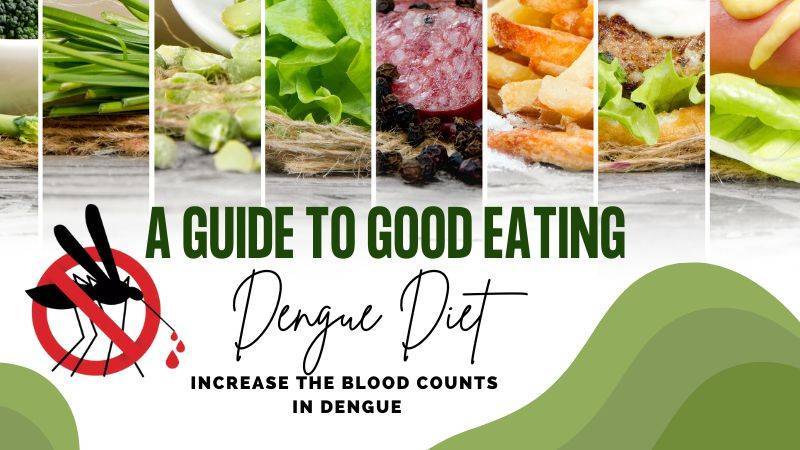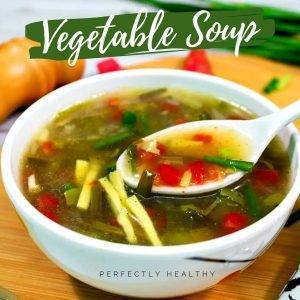“Eating to prevent Dengue patients from getting sick!”
Overview
Eating the right food sources can assist with helping the resistant framework, lessen aggravation, and give the body the supplements it necessities to recuperate.
This guide will provide information on the best foods for dengue patients, as well as tips on how to make healthy meals.
What is Dengue Fever
Dengue fever is a mosquito-borne disease spread by the bite of an infected Aedes mosquito which is found in standing water. 
This flu–like illness causes severe headaches, muscle and joint pain, nausea, vomiting, and rash. In some cases, it can lead to a more serious condition called dengue hemorrhagic fever, which can cause bleeding, low blood pressure, and death.
It is a worldwide issue and is the most infectious of every human contamination. The infection is most regularly spread through contact with water that has been dirty or sullied with water Dengue.
Take precautions to avoid being bitten by mosquitoes by using insect repellent, wearing long-sleeved clothing, and staying indoors during peak mosquito hours.
How to Create Nutritious Meals for Dengue Patients
While focusing on a dengue patients, nutritious feasts will assist them with recuperating. Here are a few ways to make nutritious feasts for dengue patients:
1. Choose nutrient-dense foods: Foods high in vitamins, minerals, and other essential nutrients includes fresh fruits and vegetables, lean proteins, whole grains, and healthy fats.
2. Avoid processed foods: Such foods are often high in sugar, sodium, and unhealthy fats, which can be detrimental to a dengue patient’s recovery.
3. Include plenty of fluids: Fluids help to replace lost fluids and electrolytes. Offer plenty of water, soups, smoothies, and juices.
4. Avoid spicy and acidic foods: Zesty and acidic food sources can disturb the stomach and demolish side effects.
5. Offer small, frequent meals: Eating more modest foods all the more oftentimes can assist with decreasing sickness and other stomach-related issues.
6. Avoid caffeine and alcohol: Caffeine and alcohol can worsen symptoms and interfere with recovery.
By following these tips, you can create nutritious meals that will help a dengue patient recover.
Role of Goat milk in a Dengue Patient Diet

Platelets are an important part of the blood-clotting process, and their numbers can drop during dengue fever. A drop in platelet count is called Thrombocytopenia. A low platelet count can prompt draining and swelling.
During dengue fever, a decrease in the platelet count and a lack of Selenium is found generally. As far as this, Goat milk has 27% more Selenium than different types of milk accessible on the lookout. It is beneficial for dengue patients as it is a natural source of electrolytes and helps to replenish the body‘s fluids also rich in vitamins and minerals, which can help to boost the immune system.
Goat milk additionally assists in working on the stomach-related and metabolic usage of various minerals with iron, calcium, magnesium, and phosphorus.
Specialists have proposed the utilization of goat milk to patients with a low blood platelet count, as many can’t think about taking a platelet bonding from outside can be done to keep up with the degrees of organic liquids.
The body platelets count during dengue fever is important to keep track of because it can help you determine if they are being produced appropriately.
Protein in a Dengue Patient’s Eating Regimen
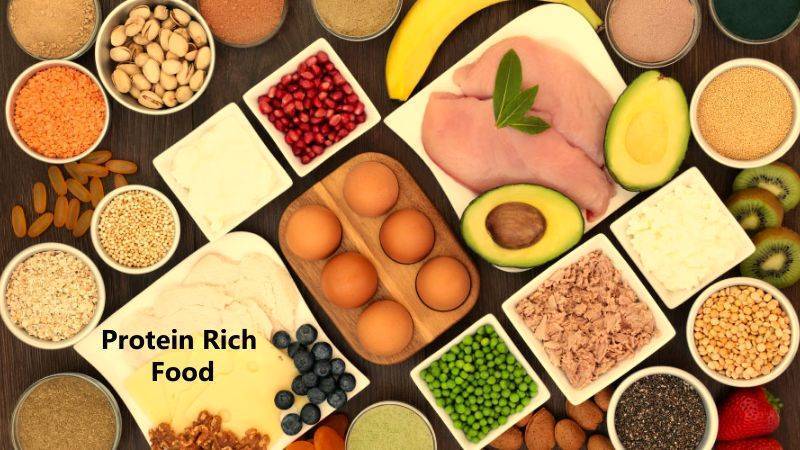
Protein helps to repair and rebuild damaged tissues, which is especially important for dengue patients who have experienced tissue damage due to the virus. Protein also helps to boost the immune system, which is essential for fighting off the virus.
- Select sources that are easily digestible and provide essential nutrients. Lean meats, like chicken, turkey, and fish, are good sources of protein that are easy to digest.
- Plant-based proteins, like beans, lentils, and nuts, are good sources of protein that are easy to digest. Some plant-based proteins, like soy, may not be suitable for dengue patients due to their high levels of phytoestrogens.
- Ensure that protein sources are low in fat, cholesterol, and sodium.
- Ensure that the protein sources are high in essential vitamins and minerals.
These nutrients are essential for helping the body fight off the virus and for aiding in the recovery process. Foods such as eggs, dairy products, and fortified cereals are good sources of essential vitamins and minerals.
Hydration for Dengue Patients
 Hydration is fundamental for dengue patients as it assists with lessening the seriousness of the side effects. At the point when an individual is dried out, their body can’t fend off the infection successfully.
Hydration is fundamental for dengue patients as it assists with lessening the seriousness of the side effects. At the point when an individual is dried out, their body can’t fend off the infection successfully.
This can lead to more severe symptoms, such as fever, headache, muscle and joint pain, and fatigue. Stay hydrated to lessen the seriousness of their side effects and to assist their bodies with battling the infection.
Drink plenty of fluids, such as water, juice, and electrolyte-rich drinks, and avoid caffeinated and alcoholic beverages, as these can cause dehydration like thirst, dry mouth, and dark-colored urine.
A Diet Plan For a Dengue Patient
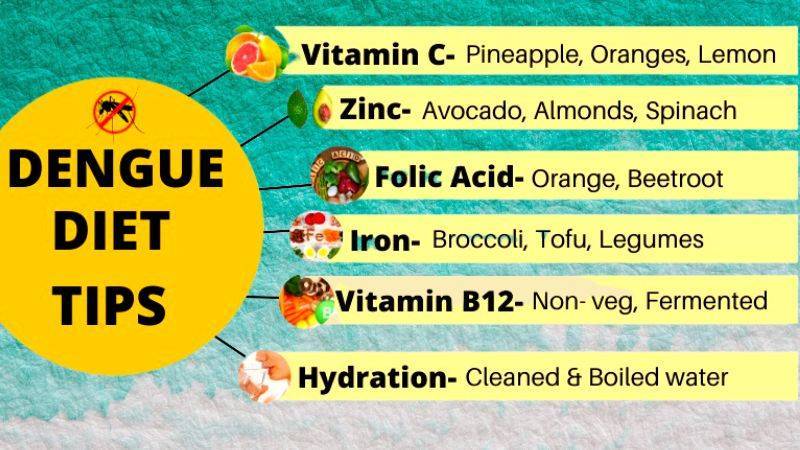
For a dengue patient, food should consist mainly of fluids and electrolytes to replace lost fluids and minerals, and moderate protein and carbohydrate intake.
The following is a suggested per-day diet plan for a dengue patient:
Meal 1:
- Milk And corn flakes or
- Fruit juice or smoothie made with banana, mango, and pineapple or
- Tender Coconut Water or
- Yogurt or
- Bread with honey
Meal 2:
- Chicken soup or
- Parboiled Rice or
- Boiled Eggs or
- Green salad
Meal 3:
- Fruit salad or
- Toast with low-fat butter or
- Spinach Soup or
- Carrot Soup or
- Chicken Soup or
- Vegetable Soup
Meal 4:
- Fish or
- Carrot and Potato Curry or
- Boiled Eggs or
- Boiled Rice
Tips for Eating Out Safely as a Dengue Patient
Eating out can be an extraordinary method for partaking in a feast with loved ones, however, it tends to be difficult for those living with dengue.
Here are some tips to help you eat out safely as a dengue patient:
1. Choose your restaurant wisely. Look for restaurants that have a good reputation for cleanliness and food safety. Avoid places that are crowded or have poor hygiene standards.
2. Ask questions. Ask the waiter or chef about the ingredients used in the dishes you are considering. Make sure to ask about any potential allergens or food-borne illnesses that could be present in the food.
3. Avoid raw foods. Raw foods can contain bacteria and viruses that can make dengue worse. Stick to cooked foods that have been heated to a safe temperature.
4. Avoid sugary drinks. Sugary drinks can cause blood sugar levels to spike, which can be dangerous for dengue patients. Stick to water or unsweetened tea.
5. Ask for modifications. If you are unsure about a dish, ask the waiter or chef if they can make modifications to make it safer for you.
Make sure to be delicate to the necessities and have feasts that are custom-made to the singular requirements.
Let Us Hear Dr. RAJA INDANA how to recover fastly by taking the right diet during Dengue Fever
“Fuel Your Recovery with Nutritious Foods: Eat Right to Fight Covid-19!”
Overview
Eating the right foods can help you stay healthy and fight off the virus. Eating a balanced diet that includes plenty of fruits, vegetables, whole grains, and lean proteins can help boost your immune system and give you the energy you need to fight off the virus.
What is Covid
Covid-19 is a contagious respiratory illness caused by a novel coronavirus, known as SARS-CoV-2. It is a new strain of coronavirus that has not been previously identified in humans.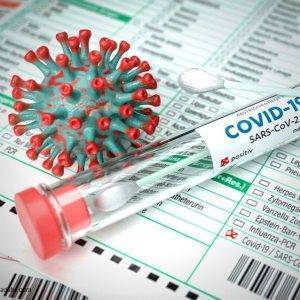 The virus is spread through contact with an infected person, through respiratory droplets produced when an infected person coughs, sneezes, or talks. It can also be spread by touching a surface or object that has the virus on it and then touching your mouth, nose, or eyes.
The virus is spread through contact with an infected person, through respiratory droplets produced when an infected person coughs, sneezes, or talks. It can also be spread by touching a surface or object that has the virus on it and then touching your mouth, nose, or eyes.
Warning Signs of Covid
Covid-19 is a highly contagious virus that has been spreading rapidly around the world. Be aware of the warning signs of Covid-19 to protect yourself and those around you.
The most common symptoms of Covid-19 are
- Fever
- Dry cough
- Shortness of breath
- Fatigue
- Body aches
- Chest pain or pressure
- Sore throat
- Headache
- Loss of taste or smell
- Bluish lips or face
- Congestion
- Nausea
- Diarrhea
If you experience any of these symptoms, seek medical attention immediately. Practice social distancing, wear a face mask, and wash your hands frequently to protect yourself and those around you.
Fruits and Vegetables to Eat During Covid
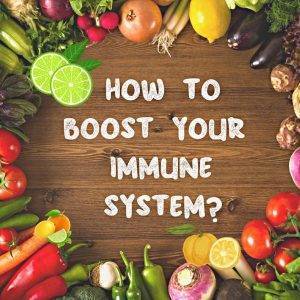 Eating a balanced diet of fruits and vegetables is essential for maintaining good health, especially during the Covid-19 pandemic. Fruits and vegetables are packed with essential vitamins, minerals, and antioxidants that can help boost your immune system and protect you from infection.
Eating a balanced diet of fruits and vegetables is essential for maintaining good health, especially during the Covid-19 pandemic. Fruits and vegetables are packed with essential vitamins, minerals, and antioxidants that can help boost your immune system and protect you from infection.
Here are some of the best fruits and vegetables to eat during Covid-19:
1. Citrus fruits: Citrus fruits such as oranges, lemons, and grapefruits are rich in vitamin C, which is essential for a healthy immune system. Vitamin C helps to protect cells from damage and can help reduce inflammation.
2. Leafy greens: Leafy greens such as spinach, kale, and Swiss chard are packed with vitamins, minerals, and antioxidants. They are also high in fiber, which can help keep your digestive system healthy.
3. Berries: Berries such as strawberries, blueberries, and raspberries are rich in antioxidants and can help reduce inflammation. They are also a great source of vitamin C.
4. Cruciferous vegetables: Cruciferous vegetables such as broccoli, cauliflower, and Brussels sprouts are packed with vitamins, minerals, and antioxidants. They are also high in fiber, which can help keep your digestive system healthy.
5. Garlic: Garlic is a powerful antioxidant and anti-inflammatory. It can help boost your immune system and protect you from infection.
6. Mushrooms: Mushrooms are a great source of vitamins, minerals, and antioxidants. They are also high in fiber, which can help keep your digestive system healthy.
7. Tomatoes: Tomatoes are rich in vitamins, minerals, and antioxidants. They are also high in lycopene, which can help reduce inflammation and protect cells from damage.
Incorporate Healthy Fats and Oils Into Your Diet During Covid
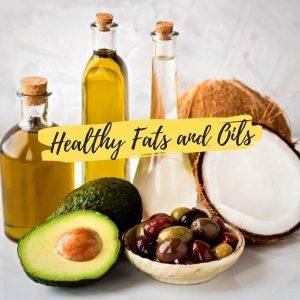 Here are some tips for incorporating healthy fats and oils into your diet during the pandemic:
Here are some tips for incorporating healthy fats and oils into your diet during the pandemic:
1. Choose healthy fats and oils. Healthy fats and oils include olive oil, avocado oil, coconut oil, and nut oils. These fats and oils are rich in monounsaturated and polyunsaturated fatty acids, which are beneficial for your health. Avoid trans fats and processed oils, such as vegetable oil, corn oil, and canola oil.
2. Use healthy fats and oils in cooking. Use healthy fats and oils when cooking to add flavor and nutrition to your meals. For example, use olive oil when sautéing vegetables or baking fish.
Coconut oil is great for stir-frying and baking. Avocado oil is a great choice for salad dressings and marinades.
3. Add healthy fats and oils to your meals. Add a tablespoon of olive oil or avocado oil to your salads or soups for added flavor and nutrition. You can also add a tablespoon of nut butter to your smoothies or oatmeal for a healthy dose of healthy fats and protein.
4. Eat more fatty fish. Fatty fish, such as salmon, mackerel, and sardines, are rich in omega-3 fatty acids, which are beneficial for your heart health. Aim to eat fatty fish at least twice a week.
5. Include nuts and seeds in your diet. Nuts and seeds are great sources of healthy fats and protein. Try adding a handful of nuts or seeds to your salads, oatmeal, or yogurt for a nutritious snack.
Eat Fermented Foods During the Covid 
The Covid-19 pandemic has caused a great deal of disruption to our lives, and it is important to take steps to ensure that our bodies are as healthy as possible. Eating fermented foods is one way to do this, as they are packed with beneficial nutrients and can help to boost the immune system.
Fermented foods are created through a process of lacto-fermentation, which involves the use of beneficial bacteria to break down the sugars and starches in food.
This process creates lactic acid, which acts as a preservative and helps to keep the food fresh for longer. It also increases the nutrient content of the food, making it more easily absorbed by the body.
Fermented foods are rich in probiotics, which are beneficial bacteria that help to keep the digestive system healthy.
They can help to reduce inflammation, improve digestion, and boost the immune system. They also contain beneficial enzymes, which can help to break down food and make it easier to digest.
Fermented foods are also a great source of vitamins and minerals, including vitamin B12, vitamin K2, and folate. These vitamins and minerals are essential for a healthy immune system and can help to reduce the risk of infection.
Eating fermented foods can also help to reduce stress levels, as they contain compounds that can help to reduce cortisol levels. This can help to reduce the risk of developing illnesses, as stress can weaken the immune system.
Fermented foods are a great source of antioxidants, which can help to protect the body from free radical damage. This can help to reduce the risk of developing chronic illnesses, such as heart disease and cancer.
In conclusion, eating fermented foods is beneficial for overall health. So include fermented foods in your diet always.
Nutrient-Dense Soups and Stews to Boost Your Immune System
Soups and stews are a great way to boost your immune system and get a variety of nutrients into your diet. 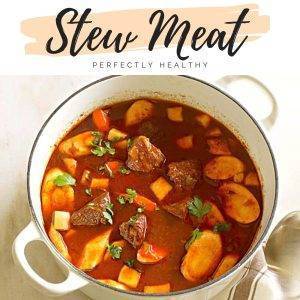 Here are some tips for making nutrient-dense soups and stews that will help keep your immune system strong.
Here are some tips for making nutrient-dense soups and stews that will help keep your immune system strong.
1. Start with a nutrient-rich broth. The broth is the base of any soup or stew, so it’s important to choose one that is full of nutrients. Bone broth is a great option, as it is full of minerals and amino acids that can help support your immune system. You can also use vegetable broth or stock, which is full of vitamins and minerals.
2. Add plenty of vegetables. Vegetables are packed with vitamins, minerals, and antioxidants that can help boost your immune system. Try to include a variety of colors and types of vegetables in your soup or stew.
3. Include legumes. Legumes such as beans, lentils, and peas are a great source of protein and fiber, both of which can help support your immune system.
4. Add herbs and spices. Herbs and spices are full of antioxidants and other compounds that can help boost your immune system. Try adding garlic, ginger, turmeric, oregano, and other herbs and spices to your soup or stew.
5. Include healthy fats. Healthy fats such as olive oil, coconut oil, and avocado oil can help support your immune system. Try adding a tablespoon or two of these oils to your soup or stew.
By following these tips, you can make nutrient-dense soups and stews that will help keep your immune system strong. Enjoy!
A Healthy Recipe for Covid Patient
Ingredients:
– 2 tablespoons olive oil
– 1 onion, diced
– 2 cloves garlic, minced
– 2 carrots, diced
– 2 celery stalks, diced
– 2 potatoes, diced
– 1 teaspoon dried oregano
– 1 teaspoon dried thyme
– 1 bay leaf
– 6 cups vegetable broth
– 1 (14.5 ounce) can dice tomatoes
– 1 (15-ounce) can of kidney beans, drained and rinsed
– 1 cup frozen corn
– Salt and pepper to taste
Instructions:
1. Heat the olive oil in a large pot over medium heat. Add the onion and garlic and cook until softened, about 5 minutes.
2. Add the carrots, celery, potatoes, oregano, thyme, and bay leaf. Cook for another 5 minutes, stirring occasionally.
3. Pour in the vegetable broth and bring it to a boil. Reduce the heat to low and simmer for 15 minutes.
4. Add the diced tomatoes, kidney beans, and corn. Simmer for another 10 minutes.
5. Season with salt and pepper to taste. Serve hot.

